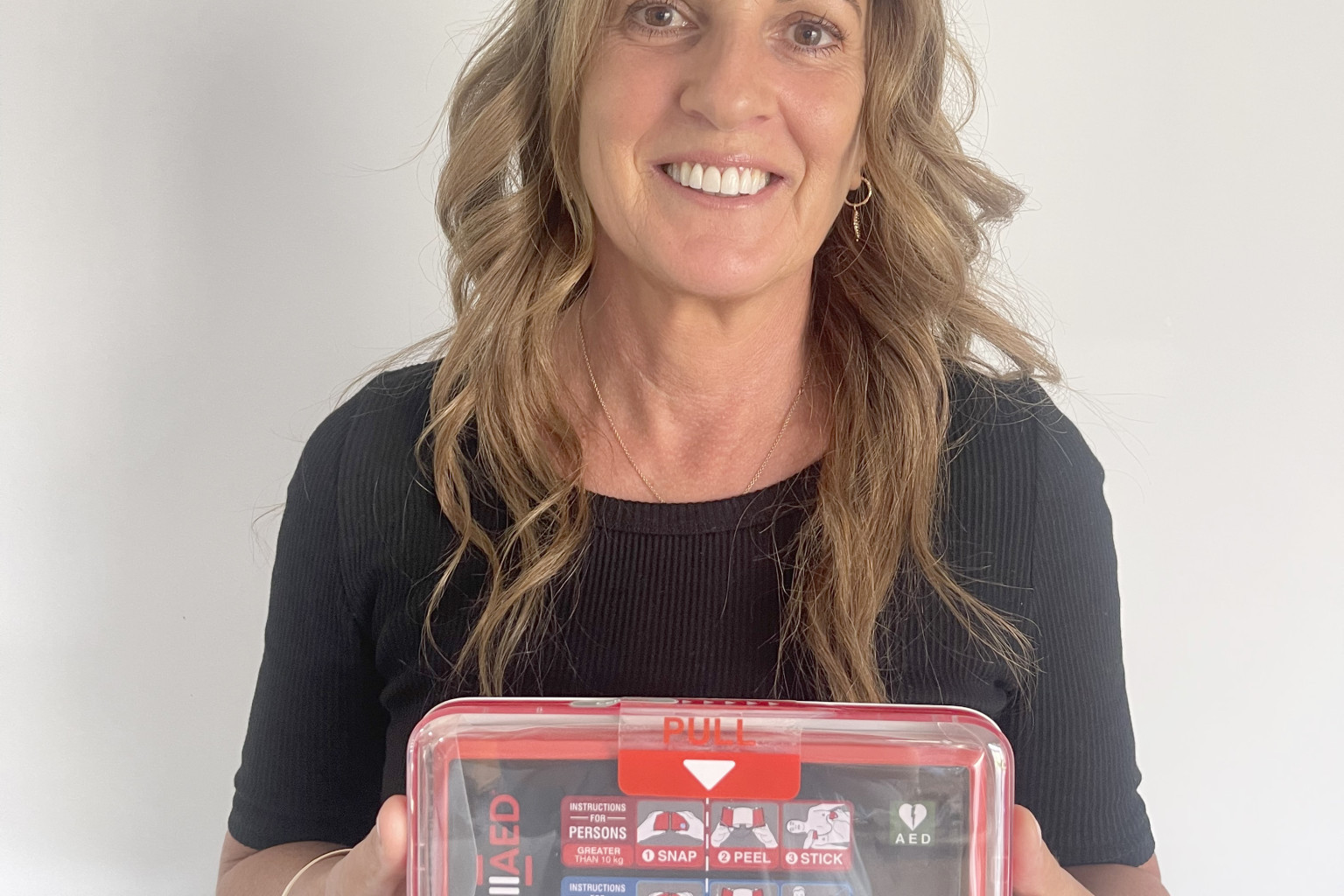General News
23 March, 2024
Community device a literal lifesaver / Horsham woman beats the odds thanks to AED
According to data released by Ambulance Victoria (AV), about 20 Victorians suffer cardiac arrest every day, with only one in 10 surviving.

According to data released by Ambulance Victoria (AV), about 20 Victorians suffer cardiac arrest every day, with only one in 10 surviving.
Horsham’s Sue Miller is one of the minority, one of the lucky ones - a survivor.
“Five years ago I had a cardiac arrest,” Mrs Miller said.
“I was in Horsham for a reunion for school with three friends. It was a Saturday morning and we were getting ready to go out for breakfast.
“I was healthier than ever, not overweight, no high blood pressure, as fit as anything - healthier than I had ever been at 49.
“I started getting these overwhelming feelings in my shoulders and feeling funny.
“The last thing I remember was getting clammy before I passed out.”
Luckily, there were ambulance officers also enjoying a morning coffee at McDonalds, next door to where Mrs Miller was lying.
Mrs Miller was shocked using their on-board Automatic External Defibrillator (AED) three times to restore her heart rhythm, and said she still gets emotional, reflecting on what she would have missed out on if help hadn’t been so close.
“I’ve got four kids - they are adults, in their early 20’s now, but they were 15, 17, 18 and 19 when it happened,” Mrs Miller said.
“I would have missed a wedding, and I’m going to be a grandma in a few weeks.
“All these things now - it’s really emotional.
Mrs Miller had time to reflect on how lucky she was as she recovered in hospital, but had to acknowledge how vulnerable she would be in future.
“If it had happened at home, I would have been dead,” Mrs Miller said.
“It would have been over.”
The family assuaged Mrs Miller's fears by purchasing their own AED to have on hand should it ever be needed, and she has now become an advocate for having AEDs easily and readily available.
After recovering from her near death experience, Sue Miller said she felt nervous about going home to the farm, which was 40 minutes from town.
Mrs Miller found a way to ease her worries, as well as give others the same second chance at life that she had, by purchasing three Automatic External Defibrillator (AED) for personal use.
“It’s also a reassurance if anyone else was to ever need it too,” she said.
“And then these new little AEDs came out, and they’re amazing.
The Miller family have invested in two smaller AED units, which are more portable, as well as the larger unit which is based at home, on the farm, where they often have visiting agents and ram sales.
“They go everywhere with us - one for the car that goes with the boys in the ute, and the other one either comes with me, or goes in the caravan and my backpack if we are hiking, or my bag,” Mrs Miller said.
“They’re foolproof: you snap it and stick it, and they’re activated by voice, so they tell you what to do.
“They aren’t cheap, but you can’t put a price on a life.”
Mrs Miller said having AEDs available at the farm, there was now a chance for a person suffering a cardiac arrest to survive.
“It’s about getting their importance out there - making people understand if they have one of these, they might not save a life, but they would have the chance,” Mrs Miller said.
“It’s worth it.”
According to recent data from Ambulance Victoria, there were 7830 statewide cases of away-from-hospital cardiac arrests in 2022-23 - 6.4 per cent more than in the previous year.
Among those cases, 139 had a shock delivered from a public AED - the highest number on record, and up from 107 cases a year earlier, and evidence that more community members are reaching for publicly accessible AEDs and rendering aid in emergency situations.
“Out-of-hospital cardiac arrest is one the leading causes of death worldwide,” AV director of research and evaluation Ziad Nehme said.
“It is a significant public health issue in Australia.
“Data from the most recent Victorian Ambulance Cardiac Arrest Registry (VACAR) report reinforces why our state has the best cardiac survival rates in Australia, and is among the best in the world.”
Mr Nehme said more and more members of the public were willing to assist in emergency situations, and seek training in CPR and AED usage, leading to an increase in survival rates.
“When cardiac arrests were witnessed by members of the public, 80 per cent of people were willing to step up and commence lifesaving cardiopulmonary resuscitation (CPR) - a vital step in the chain of survival,” he said.
“There was also a record number of people using AEDs.
“Fifty-three per cent of patients survived their cardiac arrest after receiving a shock before paramedics arrived.”